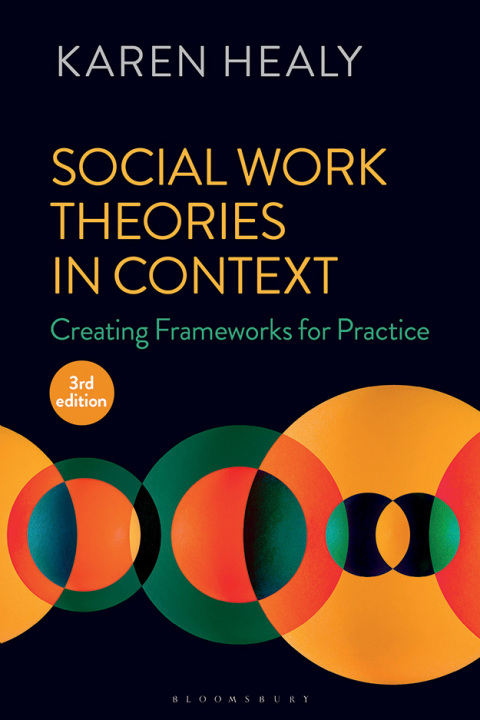Description
Efnisyfirlit
- Cover
- Halftitle Page
- Title Page
- Contents
- List of Figures and Tables
- Preface
- Acknowledgements
- Part 1 Introduction
- 1 Understanding Our Context
- The Importance of Discourse
- Theories for Practice
- Discourses and Theories for Practice: What’s the Difference?
- Why Context Matters
- Conclusion
- 2 A Dynamic Model of Practice
- Constructing Social Work Purpose: A Dynamic Approach
- A Dynamic Approach to Theory Use
- Creating and Using Theory in Practice: Debates about Evidence and Reflection
- Approaching Theory Reflexively: Creating Theory in Practice
- Conclusion
- Part 2 Discourses Shaping Practice Contexts
- 3 Dominant Discourses in Health and Welfare: Biomedicine & Neoliberalism
- The Biomedical Discourse
- Neoliberal Discourse
- Dominant Discourses as Sites of Struggle
- Conclusion
- 4 Behavioural and Social Science Discourses: ‘Psy’ and Sociological Ideas in Social Work
- Social Work and the ‘Psy’ Disciplines
- Sociological Discourses
- Conclusion
- 5 Alternative Discourses: Citizen Rights, Religion and Spirituality, and Post-Humanism
- Citizen Rights Discourse
- Religious and Spiritual Discourses
- Post-Humanism: Recognizing the ‘More-Than-Human’ World
- Conclusion
- Part 3 Social Work Theories for Practice
- 6 Four Waves of Systems Theories: From General Systems Theory to Eco-social Work
- Systems Theories in Context
- The First Wave: General Systems Theory
- The Second Wave: Ecosystems Perspectives
- The Third Wave: Complex Systems Theories
- The Fourth Wave: Eco-social Work
- Strengths and Limitations of Systems Theories in Social Work
- Conclusion
- 7 Problem-solving Approaches: Focusing on Task-Centred Practice
- Problem-solving Practice in Context
- Task-Centred Practice: A Brief History
- Key Principles of Task-Centred Practice
- Task-Centred Practice: Putting the Model into Practice
- Comparing Task-Centred and Crisis Intervention
- Links to Motivational Interviewing
- Strengths, Weaknesses and Issues in Problem-solving Approaches
- Conclusion
- 8 Relationship-Based, Strengths and Solution-Focused Practice
- Contexts of Theory Development
- Relationship-Based Practice
- Strengths
- Weaknesses and Concerns
- Origins of the Strengths Perspective
- Knowledge Foundations of the Strengths Perspective
- Practice Assumptions and Principles
- The Strengths Perspective in Community Development: An Assets Approach
- Solution-Focused Brief Therapy (SFBT)
- Differences between Strengths and SFBT
- Strengths of the Strengths Perspective and SFBT
- Weaknesses and Concerns about the Strengths Perspective and SFBT
- Conclusion
- 9 Modern Critical Social Work: Addressing Structural Contexts
- The Foundations of Modern Critical Social Work
- The Early History of Critical Social Work
- The Birth of Radical Social Work
- Diversifying Critical Practice
- Anti-oppressive Practice
- Core Assumptions of Anti-oppressive Practice
- Anti-oppressive Practice: Some Critical Reflections
- Conclusion
- 10 ‘Post-theories’: Postmodern, Poststructural and Postcolonial Approaches
- Post-Theories in Context
- Differences among Post-Theories
- Post-Theories and Social Work Practices
- Key Concepts
- Discourse
- Subjectivity
- Power
- Deconstruction
- Progress
- Conclusion
- 11 Creating Frameworks for Practice
- The Challenges Facing Social Work
- Frameworks for Practice
- Formalizing Practitioner Contribution to Knowledge
- Conclusion
- Bibliography
- Index
- Imprint







Reviews
There are no reviews yet.